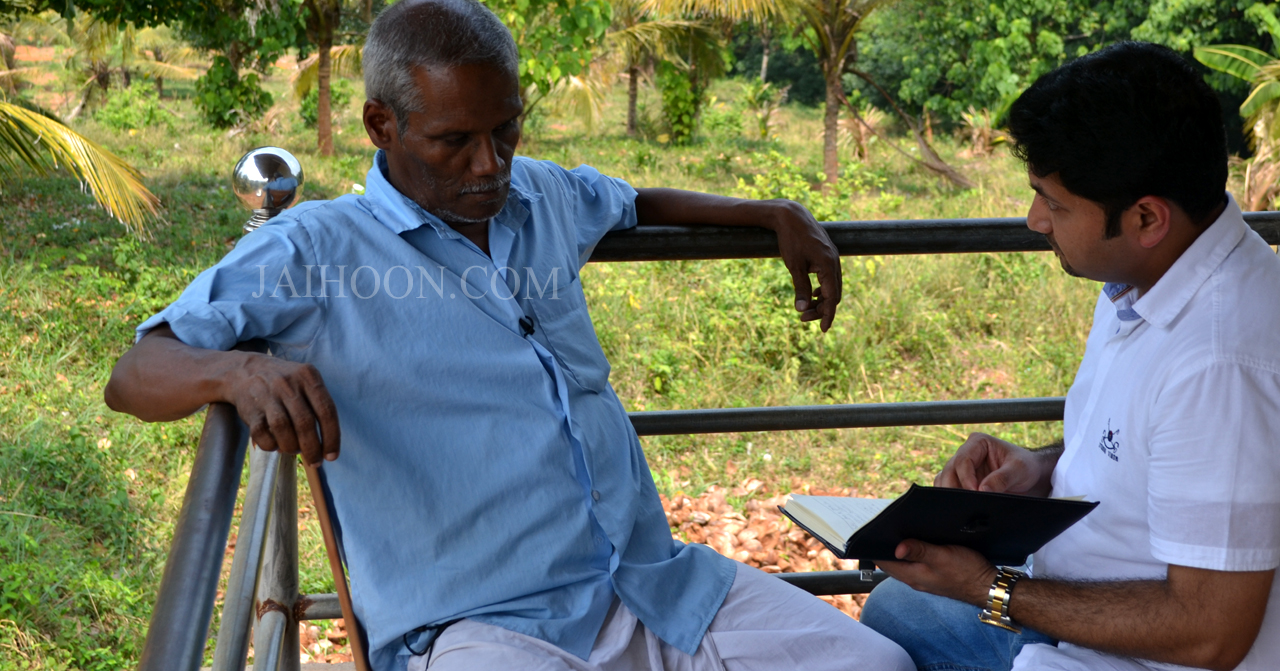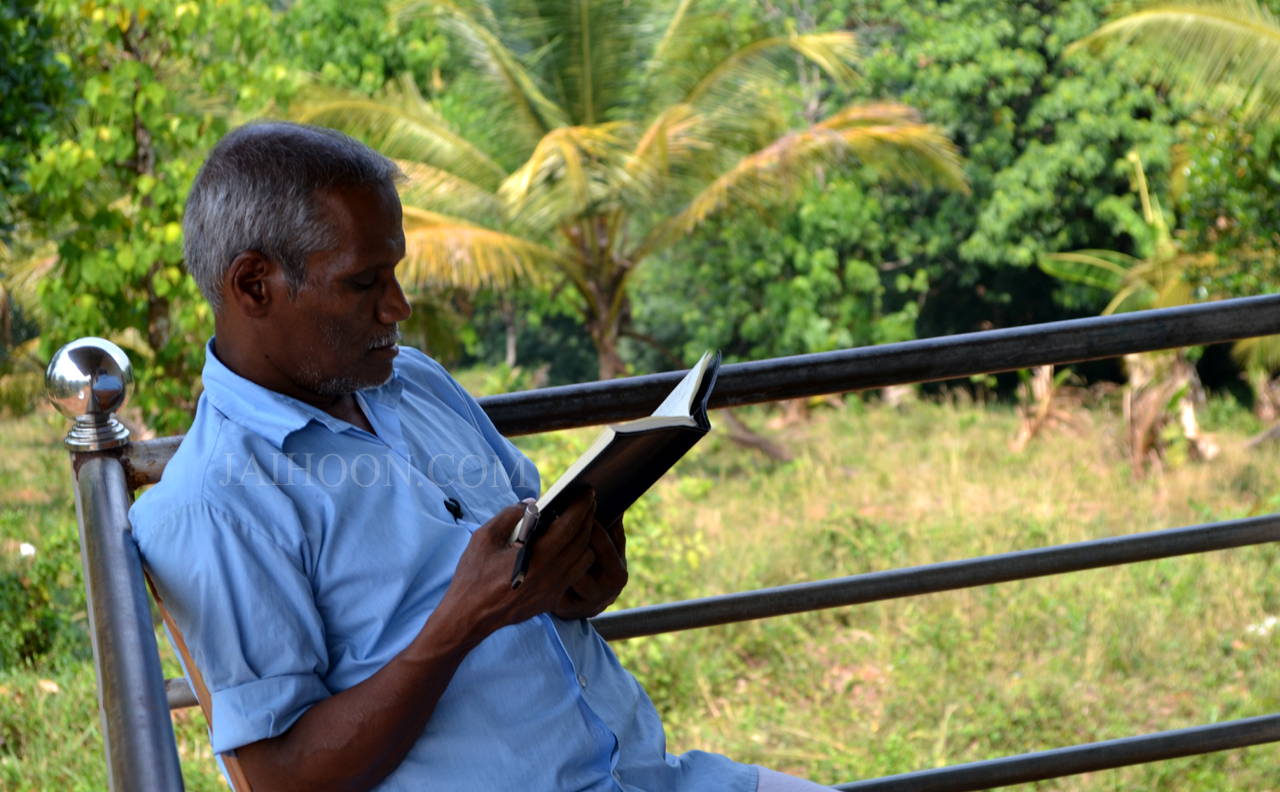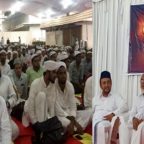
Meeting with C Hamza, April 05 2016. Melattur, Kerala
This was the second opportunity to be an audience to some ‘other’ facts from the solitary mystic of Melattur in Kerala. Commanding the knowledge of seven languages, author and translator of several books, Muslim Kerala is eager to give an ear to his unconventional stands and statements. The Asha’arite Sunnis accuse him of holding views they consider heretic while others take him to task for his conservative Sufi philosophy.
C. Hamza, currently teaching English in a community run college for past 10 years, is an expert on Sufism and History. A soft-spoken critic of contemporary Muslim Kerala, Hamza is a valuable source on anything related to the mystic movement. He shared some interesting insights on the way back from an online channel‘s video interview.
He is one of the few living scholars in Kerala who is well versed in Persian and has a lifetime of association with the Iranian intelligentsia. For practical reasons, Farsi is almost a quintessential requirement for the higher seekers and students in Tasawwuf, as the history of Sufis and its chief Masters has an undeniable link to the Persian landscape.
He is also frequently invited by educational institutions and religious organizations of the thousand and one split spectrum of Muslim Kerala. Notwithstanding, this is besides those individuals who approach for editing school and college magazines as well as theses. He complains of lack of time for his real passion.
Commenting on the late Mahatma of Malabar, Sayyid Muhammadali Shihab Thangal, he says the legendary leader had profound knowledge about Sufism & History. The Sayyids of Panakkad, according to C Hamza, are revered and respected for their benevolent actions, not mere words alone. People see them as a source of succor and seek their prayers. ‘Panakkad Thangals are the ultimate pillars of contemporary Kerala Muslim’s existence’ said he.
He did not forget to add that more important than ‘what’ one says is ‘how’ the audience would understand them. People of power and influence, asserted C Hamza, need to be vigilant and cautious with their words.
C. Hamza is a die-hard fan of Imam Al Ghazali and naturally listens to the Cambridge-based Ghazalian scholar, Abdul Hakim Murad. He believes that Ihya Uloomuddin, the magnum opus of the Sufi scholar, need to be taught in the madrasas and seminaries to familiarize the young with the greatest critical mind of the Islamic world.
But he laments that the Religious education in Kerala is more of repetition with very less intellectual stimulation. Arabic fluency is poor despite tutoring it for over a decade. He is equally concerned about the lack of depth in the religio-secular combined educational model, which is gaining prominence in the community.
C. Hamza was passionate about his Iranian connection and joked that some of his critics even brand him a Shi’te. He recalled arranging the visit of many thinkers and politicians to the land of Ayathullah. The Hamza-Iranian friendship isn’t a one-way affair either. He recalled once he had called the Iranian embassy and the gatekeeper who picked the phone asked, ‘Aap Kerala Se C Hamza hai?’ He does not know them personally, but they knew him for sure.

C. Hamza
While speaking about Iran and Persian, C Hamza did not forget to mention about Urdu, its Indian cousin. The Mughal era-developed language, said he, consist of 60% of Persian words and remaining from Turkish and Hindi. Urdu is itself a Turkish word, meaning camp, added the scholar.
During the discussion, I observed that Muslim Kerala had a faint idea about the lives of the saints they venerated. I cited the example of womenfolk who recite the mala (eulogy) of Egypt-based Sayyida Nafeesa Beevi, few knew about her biographical whereabouts. He replied saying the case of Imam Shafi & Imam Asha’ri, the beacons’ of mainstream Kerala’s jurisprudence and creed, was no different either.
Speaking of the widespread religious lectures across the land, he admitted his hesitation to attend mass public events where loudspeakers deafen the audience and adds to the noise pollution in the neighborhood.
The short drive had reached the destination. Boys and girls waited for their radical professor to continue his lectures on the poetry of Kamala Surayya. He put the final nail to the coffin of our talk saying, ‘It’s not important that we speak all the truths. But be sure that what we say is the truth.’
I fully realized what C Hamza said without saying much. Not all truths are for every mind to grind. Truth comes in many forms and sizes. Tender minds may collapse in the effort to grasp it.
Posted April 13 2016



